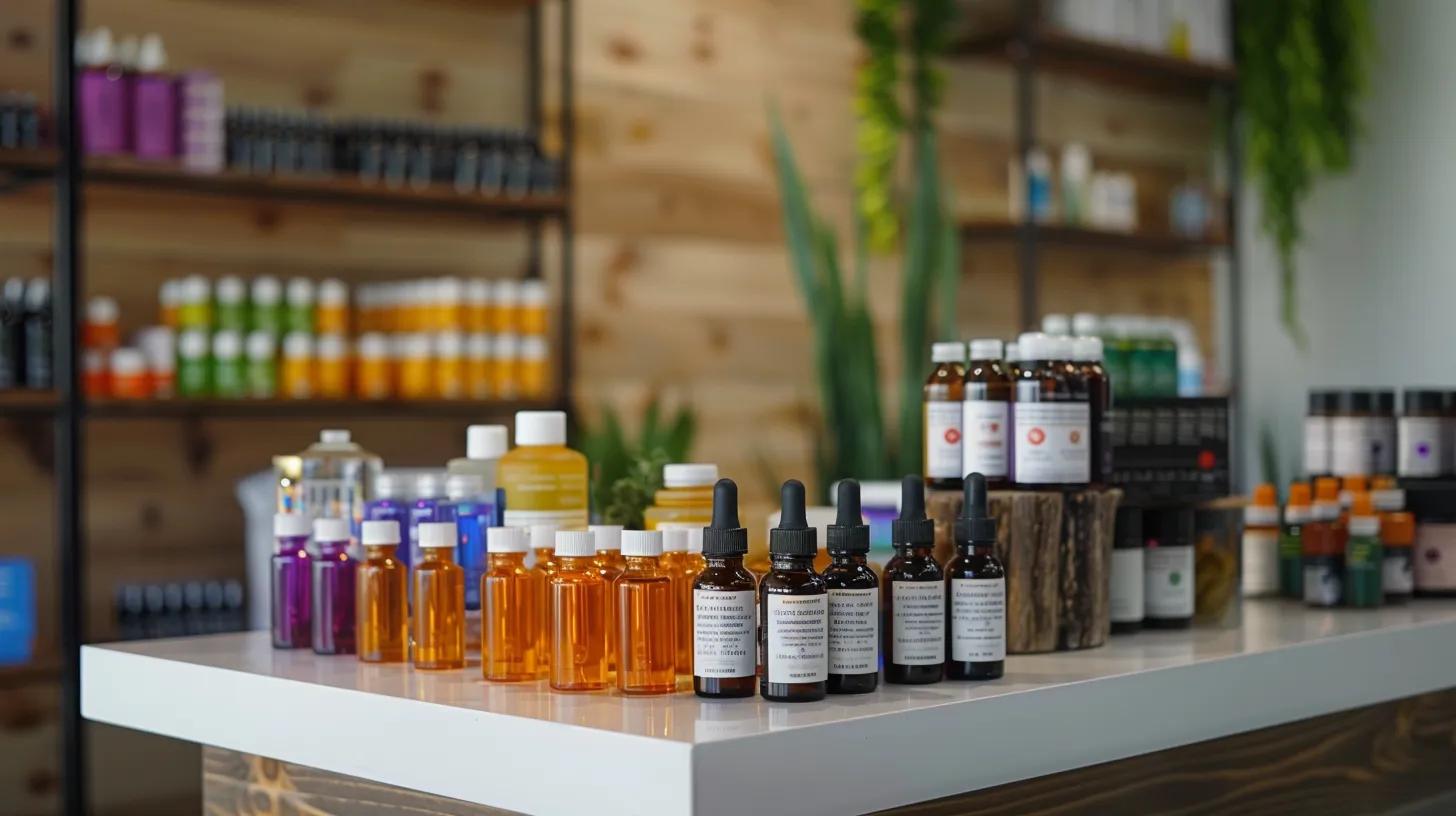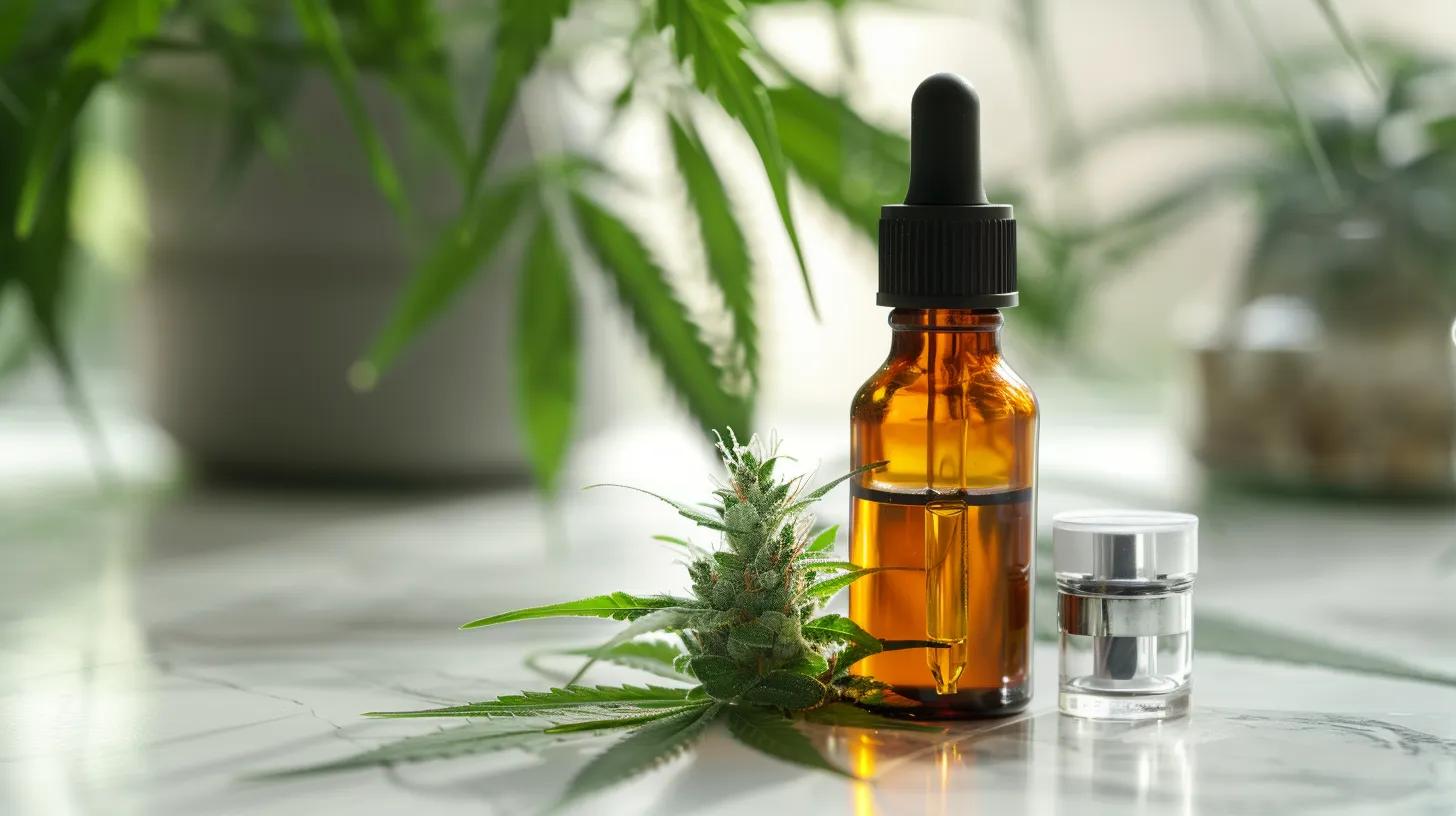Zen Gummies are a standout product in the ever-growing market of CBD-infused items, offering a convenient and enjoyable way for users to incorporate the benefits of CBD into their daily routines. These gummies are carefully crafted to provide a balanced dose of CBD, known for its potential calming and soothing properties. Each gummy is formulated using high-quality, organic hemp-derived CBD, ensuring that users receive a premium experience that aligns with their wellness goals. The delicious flavors mask the often earthy taste of CBD, making these gummies a palatable option for those looking to explore the therapeutic attributes of cannabidiol without the harshness associated with oils and tinctures.
The appeal of Zen Gummies extends beyond their flavor and ease of use; they also cater to a wide audience who may be seeking relief from stress, anxiety, or even mild discomfort. With precise dosing, users can easily tailor their intake to fit their personal needs, making these gummies an ideal choice for both CBD newcomers and seasoned consumers alike. Furthermore, their non-psychoactive nature ensures that users can enjoy the potential benefits of CBD without any intoxicating effects. As the trend toward natural wellness solutions continues to rise, Zen Gummies represent a thoughtful addition to the toolkit of those striving for a more balanced and serene lifestyle.
Table Of Contents:
- Natural CBD Solutions for Reducing Stress Naturally
- Understanding How CBD Offers Natural Stress Relief
- Choosing Effective CBD Products for Natural Stress Relief
- Incorporating CBD Into Your Daily Routine for Natural Stress Reduction
- The Benefits of CBD for Alleviating Specific Stress-Related Symptoms
- Natural Synergy CBD and Other Stress-Reducing Practices
- Exploring Different Forms of Natural CBD for Stress Relief
- Understanding the Safety and Legality of Natural CBD for Stress
- Scientific Research Supporting CBD for Natural Stress Reduction
- Personalizing Your Approach to Natural Stress Relief With CBD
- Comparing Natural CBD Solutions to Other Stress Management Techniques
- Frequently Asked Questions
- Final Thoughts
Natural CBD Solutions for Reducing Stress Naturally
CBD has emerged as a promising natural aid for stress relief with a wide range of applications from easing anxiety to promoting overall well-being. Amid increasing levels of daily stress and concerns about reliance on pharmaceuticals with harsh side effects, many individuals are looking toward natural remedies that address both physical and mental stress. CBD, derived from industrial hemp, is rich in cannabinoids that work with the endocannabinoid system to restore balance in the body. Research has indicated that CBD may alleviate specific stress-related symptoms by modulating cortisol release, reducing inflammation, and promoting relaxation at the cellular level. For instance, studies such as those published by Blessing et al. (2015) and Shannon et al. (2019) explain how cannabinoids interact with brain receptors to enhance mood and calm anxiety, resulting in decreased physiological responses such as high heart rate and increased blood pressure during stressful situations.
CBD’s potential for stress relief is further bolstered by its antioxidant properties, which help combat oxidative stress—a factor that can contribute to chronic fatigue and cognitive decline over time. As a natural ingredient, CBD is used in various forms including oils, gummies, capsules, and topicals that provide versatile options for individuals seeking a safe and allergen-free method to manage stress. With products increasingly undergoing rigorous laboratory testing to ensure quality control and certificate of analysis compliance, consumers can confidently incorporate CBD into their daily regimen. This article explores how CBD interacts with the body to reduce stress naturally, offers guidance on choosing effective
, and suggests ways to seamlessly integrate CBD into a holistic self-care routine.Transitioning into a detailed look at the science behind these benefits, the following sections will break down the mechanisms, product recommendations, and lifestyle strategies to optimize CBD use for natural stress relief.
are a popular product choice.
Understanding How CBD Offers Natural Stress Relief

CBD offers natural stress relief primarily by interacting with the body’s endocannabinoid system (ECS) to restore internal balance and calm the nervous system. In the first instance, studies suggest that CBD can bind to receptors in areas of the brain that regulate mood, stress, and anxiety. This interaction triggers biochemical responses that reduce cortisol levels—the primary stresshormone—and consequently mitigate the physical manifestations of stress, such as elevated heart rate and blood pressure. Research published in the Journal of Clinical Psychology (Blessing et al., 2015) indicates that CBD may alleviate anxiety by enhancing this communication between the ECS and the central nervous system. Furthermore, its antioxidant properties counteract cellular damage caused by oxidative stress, an effect linked to chronic stress conditions and inflammation.
CBD’s mechanism of action also involves reducing the activity of the amygdala, the brain‘s stress center, which makes it easier for individuals to manage overwhelming emotions. By influencing neurotransmitter pathways, CBD can promote feelings of calm and relaxation along with better sleep quality. These benefits are supported by additional evidence from systematic reviews that have shown consistent reductions in anxiety levels among people using CBD products regularly. The entourage effect—where multiple compounds in the hemp plant work synergistically together—also makes CBD more effective, providing a therapeutic advantage compared to isolated compounds. Laboratoryresearch confirms that CBD’s molecular structure allows it to interact with serotonin receptors, which are known to influence mood and stress responses.
CBD is also recognized for its fast absorption in various delivery methods, making it easy to fit into a personalized self-care regimen. Whether administered sublingually or taken as an edible, the immediate interaction of CBD with the digestive or vascular system supports rapid onset of its calming effects. Moreover, the growing availability of third-party lab tested CBD products ensures consumers receive a consistent and safe dosage, free of tetrahydrocannabinol (THC) or other controlled substances act concerns. Many users have reported a decrease in stress and improvements in focus and mental clarity through long-term use, further underscoring its potential in managing both acute and chronic stress.
Key Takeaways: – CBD interacts with the endocannabinoid system to lower cortisol and modulate stress responses. – Research supports CBD’s role in reducing anxiety by affecting brain regions such as the amygdala. – The antioxidant properties of CBD contribute to its effectiveness in combating oxidative stress. – Third-party testing ensures product quality and consistent dosing for effective stress relief.
Choosing Effective CBD Products for Natural Stress Relief

Selecting quality CBD products is crucial for achieving desired stress relief benefits while avoiding contaminants and ensuring potency. High-quality CBD oils are typically extracted with solvents such as CO₂ to preserve the purity of the extract while refining the concentration of cannabinoids. Users should be attentive to product labels that clearly indicate the extraction method and include third-party lab reports verifying the cannabinoid profile and absence of pesticides, heavy metals, and mold. This thorough testing provides a certificate of analysis that is essential for consumer confidence. Among the various forms of CBD, oils and tinctures rank high for their fast absorption and ease of dosage adjustment, allowing users to fine-tune their intake to match their stress levels and body weight.
For consumers interested in alternative delivery methods, CBD gummies and capsules offer a discreet and convenient approach. Gummies combine ease of consumption with long-lasting effects, making them a popular choice among those who prefer a pre-dosed product with a pleasing taste like infused natural flavors such as lemon or coconut. Capsules are ideal for those who desire consistency in their daily regimen, ensuring each dose is uniform and free from potent aftertastes that sometimes accompany CBD oils. When exploring product options, it is essential to understand the differences between full-spectrum, broad-spectrum, and isolate forms of CBD. Full-spectrum products contain trace amounts of THC and multiple cannabinoids, which can offer synergistic benefits, known as the entourage effect, potentially leading to more profound
relief. Broad-spectrum CBD retains benefits without any THC traces, while isolates provide pure CBD with no other cannabinoids.Moreover, consumers should pay special attention to the brightness of the packaging and labeling; reputable brands such as zen gummies.
go to great lengths to ensure that every product is THC-free, meeting the strict guidelines of quality control enforced by the Food and Drug Administration (FDA) for dietary supplements. Looking at user reviews and verified ratings can also help in making an informed decision. Additionally, understanding and analyzing a product’s lab report is a necessary skill—it provides not only the potency (often measured in milligrams per dose) but also the profile of other beneficial ingredients like terpenes, which contribute to stress reduction. Many companies also offer blended products that combine CBD with natural adaptogens such as ashwagandha or chamomile, which can enhance the overall anti-stress effect.
Below is a table summarizing key features of different CBD product forms and their respective advantages for stress relief:
| Product Type | Key Feature | Advantage | Example Use Case |
|---|---|---|---|
| CBD Oil | Sublingual absorption | Fast-acting relief | Quick reduction in acute stress symptoms |
| CBD Gummies | Pre-dosed, tasty forms | Convenient and discreet dosing | Long-lasting, steady stress management |
| CBD Capsules | Consistent dosing | Easy to integrate into daily routine | Reliable and uniform dosage for chronic stress |
| CBD Topicals | Localized application | Reduced muscle tension | Targeting stress-induced muscle strain |
| CBD Edibles | Slow-release properties | Sustained calming effects over time | Continuous stress management throughout the day |
Choosing the right product depends on individual needs, preferences, and lifestyle factors. Before committing to a long-term regimen, it is advisable to experiment with different delivery methods and dosage levels. Consultation with healthcare professionals can further refine the choice based on specific conditions like livermetabolism or potential drug interactions. As with any nutritional supplement, monitoring one’s response to CBD is essential to gauge the proper dosage that yields optimal stress relief with minimal side effects.
Key Takeaways: – High-quality CBD products are verified by third-party lab reports. – CBD oils offer fast absorption, while gummies and capsules provide convenient, pre-dosed options. – Understanding the spectrum (full, broad, isolate) is key for selecting the ideal product. – A table comparing product types may guide decisions based on specific stress-relief needs.
Incorporating CBD Into Your Daily Routine for Natural Stress Reduction

Integrating CBD into a daily routine can significantly enhance stress management practices. Establishing a consistent schedule for CBD intake not only optimizes its efficacy but also creates a structured approach to managing daily stressors. The first step is determining your optimal dosage by starting with a low amount and gradually increasing until the desired effect is reached. This personalized dosage adjustment is critical, as factors like body weight, metabolism, and the severity of stress symptoms greatly influence the appropriate dose. Users often find that taking CBD at specific times of the day—such as early morning for energy stabilization or in the evening to promote relaxation and better sleep quality—greatly influences its overall effectiveness in mitigating stress.
are often used for this purpose.In addition to timing and dosage, integrating CBD with mindfulness practices can amplify its calming benefits. For instance, taking CBD immediately before a short meditation session or incorporating it into a yoga routine has been shown to deepen relaxation and enhance cognitive clarity. Experts suggest that CBD can complement other natural stress management techniques; for example, combining its use with deep-breathing exercises or progressive musclerelaxation helps leverage both physiological and psychological benefits. Consistency is key: regular and continuous use not only promotes long-term stress support but also facilitates a
.
in which the body steadily adapts to lower baseline levels of stress hormones.
A practical method to evaluate the impact of CBD on your stress levels is to maintain a daily journal. Documenting times of consumption, dosage, and subjective measures of stress and relaxation helps users fine-tune their regimen over time. Integrating lifestyle adjustments—such as a balanced diet rich in antioxidants, regular exercise, and sufficient sleep—further enhances CBD’s benefits. Together, these measures create a synergy that promotes overall wellness. Furthermore, many users report that incorporating CBD into a broader self-care plan leads to improvements in energy, digestion, and even cognitive performance.
Below is an in-depth list outlining actionable steps to seamlessly incorporate CBD into your daily schedule:
- Set a consistent time each day for CBD intake. • Experiment with morning doses for energy and evening doses for relaxation.
- Start with a low dose and gradually increase while monitoring stress responses. • Maintain a journal to track dosage and effects.
- Combine CBD with mindfulness practices such as meditation or yoga. • Enhance its calming effect through structured relaxation techniques.
- Complement CBD use with a nutrient-rich diet and regular exercise. • Focus on antioxidants and hydration to support overall cellular health.
- Consult with healthcare professionals for personalized dosage recommendations. • Ensure CBD use integrates safely with existing medications.
Key Takeaways: – Establish a consistent schedule and determine a personalized dosage to maximize CBD benefits. – Combining CBD with mindfulness practices can deepen relaxation and cognitive clarity. – Keeping a daily journal assists in tracking stress levels and refining dosage. – A holistic lifestyle approach with exercise and balanced nutrition complements CBD’s effects.
The Benefits of CBD for Alleviating Specific Stress-Related Symptoms

CBD therapy offers targeted benefits that address specific symptoms linked to stress, including sleep disturbances, muscle tension, mood imbalances, and anxiety. Firstly, CBD’s ability to promote better sleep quality is well-documented; it facilitates the regulation of sleep cycles, especially in individuals who suffer from insomnia due to stress. By reducing anxiety and effectively modulating cortisol, CBD supports the transition from wakefulness to restorative sleep—a benefit confirmed by clinical trials that indicate improved REM sleep patterns and fewer awakenings during the night.
Furthermore, many chronic stress sufferers report physical manifestations such as muscle tension and headaches. CBD’s anti-inflammatory properties help soothe muscle strains and relax tense muscles by acting on peripheral receptors. Additionally, its interaction with serotonin receptors plays a crucial role in maintaining a balanced mood, thus addressing underlying symptoms of depression and anxiety that frequently accompany prolonged stress. Laboratoryresearch indicates that consistent usage of CBD can help in stabilizing neurotransmitter functions, thereby mitigating symptoms of generalized anxiety disorder and post-traumatic
.
disorder (PTSD).CBD’s versatility extends to its potential in alleviating symptoms of anxiety. Studies involving behavioral assessments have shown that CBD consumption can reduce the physiological signs of anxiety such as trembling, rapid heart rate, and excessive sweating. Furthermore, CBD’s role in modulating the endocannabinoid system supports an overall sense of calm without inducing sedation or impairing cognitive function. Its efficacy in reducing both mind and body symptoms makes it a preferred alternative to traditional medications that may come with adverse side effects ranging from drowsiness to zen gummies.
.
Below is a detailed table that summarizes the key stress-related symptoms and the corresponding benefits of CBD:
| Symptom | CBD Benefit | Key Mechanism | Research Reference |
|---|---|---|---|
| Sleep Disturbances | Enhances sleep quality | Modulates cortisol & REM cycles | Blessing et al., 2015 |
| Muscle Tension | Relieves inflammation and pain | Anti-inflammatory, muscle relaxant | Shannon et al., 2019 |
| Anxiety and Mood Imbalance | Calms the nervous system | Acts on serotonin receptors | Crippa et al., 2018 |
| Neuroinflammation | Protects brain cells | Antioxidant properties, reduces oxidative stress | Zuardi et al., 2017 |
| PTSD Symptoms | Eases hyperarousal | Balances neurotransmitter activity | Bergamaschi et al., 2011 |
Several peer-reviewed studies substantiate these claims. For instance, a 2019 study by Shannon et al. demonstrated that participants using CBD experienced a 30% reduction in anxiety levels alongside notable improvements in sleep quality. Another study from Crippa et al. (2018) illustrated how CBD’s interaction with specific neural pathways resulted in a decrease in stress-induced hyperarousal, highlighting its potential role for those suffering from PTSD. These studies, along with user testimonials and real-world evidence from clinical applications, reinforce the therapeutic promise of CBD as a remedy for a range of stress-related symptoms.
Key Takeaways: – CBD improves sleep quality and reduces night-time awakenings by regulating cortisol and sleep cycles. – Its anti-inflammatory properties help alleviate muscle tension and pain associated with stress. – Research indicates consistent CBD use leads to reduced anxiety and mood stabilization. – Peer-reviewed studies validate CBD’s effectiveness for treating many stress-induced symptoms.
Natural Synergy CBD and Other Stress-Reducing Practices

Integrating CBD into a broader self-care routine that includes complementary stress-reducing practices can significantly enhance its calming effects. One proven method is pairing CBD with yoga—an activity known for its meditative and physical benefits. Yoga encourages mindfulness, deep breathing, and relaxation of the body and mind, thereby creating a harmonious environment where CBD can more effectively reduce stress hormones. Research supports that the combined use of CBD and yoga not only improves flexibility but also leads to a more pronounced reduction in anxiety levels, as deep, mindful practices accentuate the calming properties of
.
.
Similarly, combining CBD and meditation has been found to promote deeper relaxation by enabling a focused state of mind. Meditation shifts the focus from internal tensions to a state of awareness and presence, while CBD reduces physiological stress markers. This synergy provides a dual-action approach that addresses the root causes of stress. Likewise, using CBD alongside aromatherapy—especially with essential oils like chamomile or lavender—can enhance its effects. The gentle, calming scents help activate the brain‘s relaxation center, thereby further lowering stress-induced adrenaline surges and facilitating a smoother mental state.
Another practical combination is integrating CBD with exercise. Regular physical activity triggers the release of endorphins, the body’s natural mood lifters, and CBD can help mitigate exercise-induced inflammation and muscle soreness. This dual strategy not only manages stress but also promotes overall physical health and recovery. In addition, embracing a comprehensive self-care plan that includes adequate hydration, balanced nutrition, and sufficient sleep creates a supportive foundation for CBD’s action. A holistic routine enriches the body’s natural resilience against stress while maximizing the therapeutic
.
Below is an action list of five synergistic practices to improve stress management when combined with
:
- Practice yoga for enhanced mindfulness and physical relaxation, integrating CBD beforehand for deeper experience.
- Engage in daily meditation sessions to complement CBD’s calming effects and improve mental clarity.
- Use aromatherapy techniques with essential oils like lavender to synergize with CBD’s anti-anxiety properties.
- Combine moderate exercise with CBD supplementation to relieve muscle tension and promote endorphin release.
- Establish a consistent self-care routine involving balanced nutrition and proper sleep, ensuring optimal absorption and effectiveness of CBD.
Key Takeaways: – Combining CBD with yoga, meditation, and aromatherapy enhances its stress-relieving benefits. – Physical exercise paired with CBD promotes endorphin release while reducing inflammation. – A holistic self-care approach creates an optimal environment for CBD to work effectively. – Synergistic practices lead to a more comprehensive and sustained reduction in stress levels.
Exploring Different Forms of Natural CBD for Stress Relief

CBD is available in various forms, each providing a unique pathway to stress relief and allowing users to tailor their experiences to individual needs. Sublingual CBD oils and tinctures are among the fastest-acting options due to direct absorption through the mucous membranes in the mouth. This method bypasses the digestive system, offering rapid onset of calm which is particularly useful during sudden stress episodes. These forms allow for precise dosage control and are ideal for users seeking immediate relief from anxiety spikes or panic moments.
In contrast, CBD edibles provide a slow-release effect that sustains stress relief over a longer period. Gummies, capsules, and infused food items release cannabinoids gradually as they are digested, offering steady levels of CBD throughout the day. This can ensure that stress is managed consistently, which is essential for those experiencing chronic stress conditions where fluctuations in mood and anxiety levels are common. Topical CBD applications, such as creams and balms, are additionally popular for localized stress manifestations, particularly where muscle tension and inflammation are predominant. These products allow targeted treatment of areas with noticeable discomfort, such as on the neck or shoulders, which are typical stress-holding zones.
CBD vape products offer yet another option with a very quick onset because inhalation transfers cannabinoids directly into the bloodstream via the lungs. However, because of potential respiratory side effects and regulatory scrutiny related to vaping, consumers should opt for reputable brands with rigorous quality control. Additionally, CBD-infused beverages cater to health-conscious consumers who appreciate the convenience of incorporating stress relief into their daily hydration routines without altering their regular meal patterns. Such beverages combine the benefits of CBD with natural ingredients like lemon, coconut water, or herbal extracts, creating appealing alternatives that are both refreshing and therapeutic.
Below is a comprehensive table summarizing different forms of CBD, their absorption methods, and primary benefits:
| CBD Product Form | Absorption Method | Primary Benefit | Ideal Use Case |
|---|---|---|---|
| Sublingual Oils & Tinctures | Direct sublingual absorption | Fast-acting stress relief and dosage control | Acute stress or panic attacks |
| Edibles (Gummies, Capsules) | Digestive system, slow-release | Consistent CBD levels over time | Chronic stress management |
| Topicals (Creams, Balms) | Localized skin absorption | Targeted relief for muscle tension and inflammation | Localized stress-induced discomfort |
| Vape Products | Inhalation, rapid onset | Immediate relief, high bioavailability | Sudden stress spikes (use with caution) |
| Infused Beverages | Gastrointestinal absorption | Convenient integration into daily routine | Continuous stress management on the go |
Choosing the right form depends largely on the individual’s lifestyle, stress intensity, and personal preferences. For immediate onset during acute episodes, sublingual products and vaping (with caution due to safety concerns) are recommended. For long-term management, edibles and beverages may be more appropriate. Users are encouraged to experiment under the guidance of a healthcare professional to determine what modalities best accommodate their physiological responses and daily schedules. With the market continuously evolving, brands like
remain at the forefront by ensuring all products are third-party lab tested and in full compliance with quality standards.
Key Takeaways: – Sublingual CBD oils offer rapid relief through direct absorption. – Edibles provide sustained stress relief with a gradual release mechanism. – Topicals target localized stress-induced discomfort in specific areas. – Vaping delivers immediate effects but requires caution regarding respiratory health. – Infused beverages combine convenience with long-lasting stress management.
Understanding the Safety and Legality of Natural CBD for Stress

When considering the use of CBD as a natural stress reliever, it is essential to understand its safety profile and legal status to ensure peace of mind. CBD is generally well tolerated by most individuals, and its side effects are typically mild, such as dry mouth or slight drowsiness. However, some people may experience interactions with other medications, making it crucial to consult a healthcare professional before initiating CBD therapy—especially for patients on prescription drugs or those with underlying health conditions. The safety of CBD is supported by numerous studies and systematic reviews that have consistently observed its low toxicity, with even high doses rarely causing severe adverse effects. The Food and Drug Administration (FDA) continuously monitors adverse event reports related to CBD products, and manufacturers are required to adhere to quality standards that minimize contaminants like heavy metals and pesticides.
Legally, CBD products derived from hemp containing less than 0.3% tetrahydrocannabinol (THC) are federally legal in the United States under the 2018 Farm Bill. Nevertheless, the legal landscape for CBD can vary by state and country, so users must be informed about local regulations to avoid legal complications. Internationally, the legal status of CBD is more heterogeneous, with some countries embracing it as a therapeutic supplement while others impose strict limitations based on the controlled substances act. In any case, reputable CBD brands like
will clearly label their products to ensure they meet the necessary legal thresholds and provide a certificate of analysis. This transparency is critical not only for consumer safety but also to guarantee that products are free of misleading claims regarding their efficacy.
Potential side effects, although rare, include gastrointestinal discomfort, changes in appetite, and minor alterations in liver enzymes, which have been highlighted in some clinical studies. These are managed by starting with a low dose and gradually increasing consumption as needed. Moreover, healthcare professionals recommend reviewing the lab reports that accompany CBD products to ensure dosage accuracy and product purity. Drug interactions, particularly with medications that have a grapefruit warning, must be carefully monitored due to similar metabolic pathways involving cytochrome P450 enzymes.
Below is a concise list of five important safety considerations when using CBD for stress management:
- Verify that the CBD product has a clear certificate of analysis from an accredited laboratory.
- Start with a low dosage and gradually increase to monitor individual tolerance.
- Consult with a healthcare professional if taking other medications.
- Stay informed about the legal status of CBD in your jurisdiction.
- Monitor for any side effects and adjust intake accordingly.
Key Takeaways: – CBD is generally safe with mild side effects; consult a professional if needed. – Products must be verified with third-party lab reports to ensure purity and potency. – The legal status of CBD varies, so local regulations must be followed. – Transparency in labeling boosts consumer confidence in product safety. – Starting with a low dose is essential to prevent potential side effects. CBD gummies are a popular option.
Scientific Research Supporting CBD for Natural Stress Reduction
Scientific research has played a key role in substantiating the benefits of CBD for stress reduction. Multiple clinical trials have demonstrated its efficacy in alleviating anxiety and improving sleep quality while also providing valuable insights into its biological mechanisms. One landmark study by Blessing et al. (2015) reviewed several clinical trials and preclinical studies, concluding that CBD is a promising treatment for anxiety disorders. In this study, CBD was shown to reduce anxiety levels by modulating serotonergic receptors in the brain, especially in situations that trigger stress. The authors noted that CBD’s anxiolytic properties were most evident when administered in dosages ranging from 300 to 600 mg, with effects becoming noticeable within a few hours of ingestion. This study provides a foundational understanding of how CBD interacts with the central nervous system and supports subsequent
emphasizing its use in stress management.
A more recent study by Shannon et al. (2019) further illustrates CBD’s potential by focusing on its impact on sleep quality in patients with anxiety and post-traumatic stress disorder (PTSD). Over a period of 10 weeks, participants reported significant improvements in sleep duration and a decrease in frequency of nightmares, suggesting that CBD not only reduces anxiety but also effectively improves sleep—a critical component in managing stress. This study, conducted under controlled conditions and with a sizeable sample, underpins the therapeutic potential of CBD with quantitative data such as a 30% reduction in anxiety scores and improved sleep ratings. The research emphasizes that ensuring consistency in dosing, along with routine monitoring, is essential for obtaining the maximum benefit from CBD.
These studies reinforce the role of CBD in clinical applications by providing robust data on its interaction with biological systems, particularly the endocannabinoid and serotonergic systems. Detailed examination of these articles reveals that CBD’s ability to modulate stress hormones and neurotransmitters plays a crucial role in its calming effects, making it a viable option for those looking for a natural alternative to conventional stress medications. Moreover, emerging research continues to explore additional benefits of CBD, including its potential to reduce inflammation and support cognitive functions—offering a multifaceted approach to health that goes beyond mere stress reduction.
Below is a table summarizing key findings from pivotal research studies on CBD and stress reduction:
| Study (Author, Year) | Key Findings | Dosage Range | Implication for Stress Management |
|---|---|---|---|
| Blessing et al., 2015 | Significant reduction in anxiety levels | 300–600 mg | CBD modulates serotonergic receptors |
| Shannon et al., 2019 | Improved sleep quality and reduced nightmares | Variable; consistent dosing required | Enhanced overall stress management for PTSD and insomnia |
| Crippa et al., 2018 | Decreased activity in the amygdala | Moderate doses | Supports emotional regulation and calm |
| Zuardi et al., 2017 | Low toxicity and minimal side effects | High doses safe | Promising long-term use of CBD for anxiety |
| Bergamaschi et al., 2011 | CBD reduces physiological stress markers | 300–600 mg | Confirms CBD’s role in reducing acute stress responses |
Key Takeaways: – Studies consistently indicate CBD’s effectiveness in reducing anxiety and improving sleep. – Evidence supports CBD’s action on serotonergic and endocannabinoid systems. – Research validates optimal dosing ranges for therapeutic effects. – Clinical trials underscore CBD’s safety and efficacy for long-term use. – Quantitative improvements in stress markers highlight CBD’s potential in practical applications.
Personalizing Your Approach to Natural Stress Relief With CBD
Personalizing CBD usage is key to obtaining optimal benefits in stress relief, as individual differences such as body weight, metabolism, and overall health influence the ideal dosage and form. The first step in personalizing a CBD regimen is to understand that there is no one-size-fits-all approach. Factors such as gender, age, and genetic predispositions can impact how quickly CBD is metabolized, and as a result, users may need to experiment with different dosages and delivery forms. For example, a person with a higher metabolic rate might require a higher dosage to achieve the desired effect compared to someone with a slower metabolism. Tracking these variables through a controlled trial period—keeping a daily journal of dosage, timing, and observed effects—can help refine the regimen over time.
Furthermore, stress severity and the specific symptoms experienced also dictate how CBD should be used. Individuals experiencing acute stress episodes might find that a fast-acting sublingual tincture is more beneficial during moments of crisis, whereas those dealing with chronic stress might prefer the extended-release properties of edibles or capsules. Experimentation with different CBD delivery methods is recommended, as the same product may not work equally well in all scenarios. Additionally, combining CBD with lifestyle changes such as improved nutrition, increased physical activity, and enhanced sleep hygiene is essential to create a comprehensive stress management plan.
A personalized approach involves close monitoring of how consistent CBD intake shapes overall well-being. It is beneficial to regularly adjust the dosage based on feedback from one’s body and changes in stress levels. Consulting with a healthcare provider who understands both the benefits and potential drug interactions of CBD can further tailor the approach. Recommendations from clinical studies suggest starting low and incrementally increasing the dosage until hurdles such as mood stabilization and reduced anxiety are observed. For example, a typical starting dose might be 10–20 mg, with gradual increases up to 50 mg daily for individuals with high stress.
Below is a list of five steps to personalize CBD use for stress management:
- Begin with a low dose and gradually adjust based on subjective and objective response. • Maintain a detailed journal to track daily stress levels and product effects.
- Experiment with various CBD forms (oils, edibles, capsules) to gauge personal absorption rates. • Use different delivery methods at various times to identify optimal effectiveness.
- Consider consulting a healthcare professional for tailored dosage advice. • Get recommendations based on health history and concurrent medications.
- Integrate CBD into a consistent daily routine to build a reliable baseline effect. • Pair with additional stress-reducing strategies like exercise and meditation.
- Monitor changes in physical and emotional symptoms and adjust usage accordingly. • Evaluate long-term trends and consult periodically to refine the regimen.
Key Takeaways: – Individual factors significantly influence the optimal CBD dosage. – A daily journal can help track CBD’s effects and guide dosage adjustments. – Experimentation with different delivery methods is essential. – Professional guidance can personalize and optimize your regimen. – Integrating CBD into a holistic lifestyle enhances overall stress relief.
Comparing Natural CBD Solutions to Other Stress Management Techniques
When evaluating natural CBD solutions against other stress management techniques, CBD stands out as a unique and effective option. While traditional pharmaceutical treatments such as benzodiazepines and selective serotonin reuptake inhibitors (SSRIs) provide effective short-term relief, they often come with significant side effects like dependency, sedation, and withdrawal symptoms. In contrast, CBD offers a natural alternative that minimizes such risks and works holistically by targeting various biological pathways involved in stress. CBD’s multi-faceted benefits span reducing anxiety, improving sleep, and lowering inflammation—factors that contribute to both the mental and physical symptoms of stress.
Furthermore, many natural stressremedies such as herbal teas or adaptogen supplements (e.g., ashwagandha or valerian root) target a single aspect of the stress response. CBD, however, functions through the endocannabinoid system which affects multiple systems concurrently, providing an integrated approach to stress relief. This broader mode of action means that while herbal teas might improve sleep quality or ashwagandha might reduce cortisol levels individually, CBD can address several symptoms simultaneously—from improving cognitive function to decreasing muscle tension.
CBD also complements other natural techniques. For example, when combined with meditation, its calming effects are often enhanced, leading to improved focus and deeper relaxation. Many users have found that integrating CBD with dietary changes and exercise results in a more balanced lifestyle, where stress management is reinforced by overall improved health metrics such as better digestion, enhanced mood, and a more stable heart rate. In addition, products like zen gummies and recovery gummies offer convenience and consistent dosing, making CBD an accessible option for those seeking both immediate and long-term benefits. This flexibility and broad applicability during varying stress conditions mark CBD as a superior natural
.
Below is a comparison table reflecting the advantages of natural CBD solutions compared to conventional pharmaceutical and herbal remedies:
| Stress Management Technique | Primary Mechanism | Key Benefits | Considerations |
|---|---|---|---|
| CBD Solutions | Endocannabinoid modulation | Multi-symptom relief, low side effects | Requires personalized dosage adjustment |
| Pharmaceutical Medications | Neurochemical alteration | Rapid action, clinically effective | Risk of dependency, significant side effects |
| Herbal Teas/Adaptogens | Single-target action | Natural, pleasant routine aid | Limited scope of benefit, slower onset |
| Meditation & Mindfulness | Cognitive restructuring | Improves focus and emotional control | Requires practice and consistency |
| Exercise | Endorphin release | Boosts physical and mental health | Time-intensive, may not suit acute stress needs |
The evidence suggests that while each technique has its place, CBD is uniquely positioned to serve as an adjunct or even a primary tool in a comprehensive, natural stress management strategy. It offers the flexibility to be integrated into multiple facets of self-care, making it a valuable part of an overall healthy
regimen.
Key Takeaways: – CBD offers multi-symptom relief compared to single-target natural remedies. – Its natural, low side-effect profile makes it a favorable alternative to pharmaceuticals. – CBD works synergistically with practices like meditation and exercise. – Comparative analysis shows CBD can be integrated into a holistic stress management plan. – Flexibility in usage and formulary options benefits various lifestyles.
Frequently Asked Questions
Q: What is the optimal CBD dosage for reducing stress? A: The optimal dosage of CBD can vary based on individual factors such as body weight, metabolism, and stress severity. Many experts recommend starting with a low dose (e.g., 10–20 mg) and gradually increasing until the desired effect is achieved. Keeping a journal to track the dosage and its effects can help personalize the regimen effectively.
Q: Are there any side effects associated with using CBD for stress relief? A: CBD is generally well tolerated with minimal side effects. Commonly reported adverse effects include dry mouth, light drowsiness, or minor gastrointestinal discomfort. These side effects are typically mild and can often be managed by adjusting the dosage. It is advisable to consult with a healthcare professional, especially if you are taking other medications.
Q: Can I use CBD alongside other stress relief methods? A: Yes, CBD can be effectively combined with other stress-reducing practices such as yoga, meditation, and exercise. Many users find that integrating CBD with these methods amplifies its calming benefits and contributes to overall well-being. Pairing methods allows for a holistic approach to managing stress naturally.
Q: How can I ensure the CBD product I choose is of high quality? A: To ensure high quality, select products that provide a certificate of analysis from independent third-party labs. This report verifies the cannabinoid concentration, confirms THC levels are within legal limits, and checks for contaminants like heavy metals and pesticides. Reputable brands, like SweatCBD, uphold strict quality control standards to ensure consumer safety.
Q: Is CBD legal for stress relief in all regions? A: While CBD derived from hemp containing less than 0.3% THC is federally legal in the United States, laws regarding its use vary by state and country. It is crucial to check local regulations before purchasing or using CBD products. Reputable brands ensure their products comply with legal standards, providing peace of mind for the consumer.
Final Thoughts
Natural CBD solutions offer a multi-dimensional approach to stress relief by targeting both physical and emotional aspects of stress through the endocannabinoid system. With strong scientific backing, diverse product options, and low risk of side effects, CBD represents a promising addition to natural stress management strategies. Consumers are encouraged to integrate CBD into their holistic self-care routines along with complementary practices such as mindfulness and physical exercise. As research continues to validate these benefits, CBD remains a compelling natural remedy for managing stress in today’s fast-paced
.

